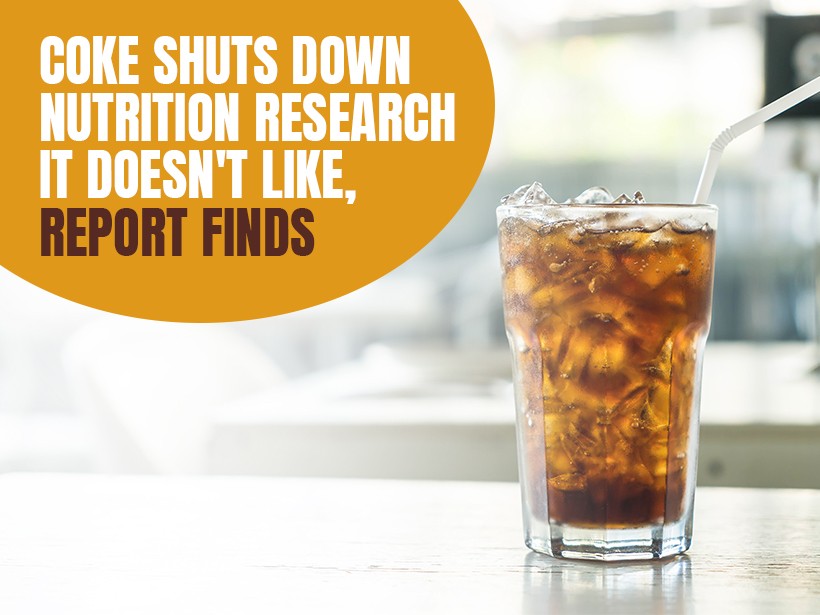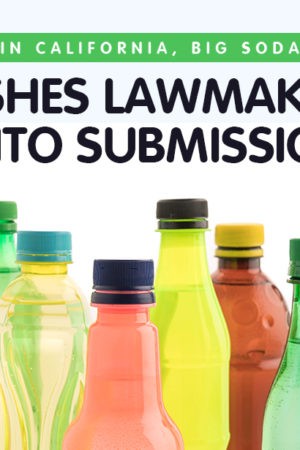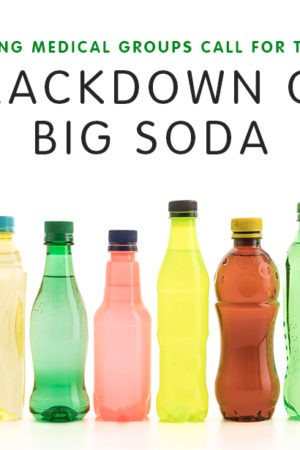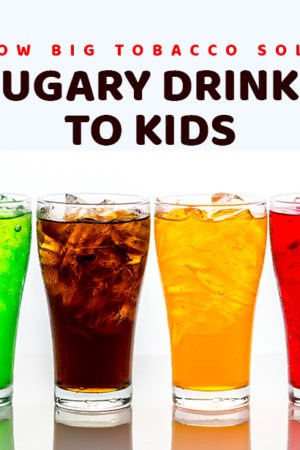We’ve written a lot both here and at Tasteaholics about the sugar industry’s knack for deceiving the public through the decades. This has happened through deceptive advertising, fake grassroots movements, and was recently seen in last year’s big news about the years of funded research that helped to reshape federal guidelines and general public information around sugar and fat for the worse.
That last method – funding and otherwise casting influence over academic work – is especially damaging, with wide-ranging consequences for policy and the public at large. The rules have changed since this practice got going in the 1960s, and researchers are now required to disclose their conflicts of interest (including the major corporations backing their work). That being said, we’ve still got a long way to go, a fact that a report out of Cambridge recently made all-the-more clear.
Burying facts to protect Big Soda
Cambridge’s Department of Politics and International Studies released a shocking report this month on Coca-Cola’s influence over the studies it funds. The authors filed a Freedom of Information Act request for the years 2015 to 2018 and got their hands on some 87,000 internal documents.1
Turns out, not only is the company allowed to spend big money in its efforts to cobble together positive-sounding research on sugar, but it’s able to shut down any studies that yield what it considers to be negative results. That means findings that are unflattering to Coke and the rest of the soda industry were concealed to protect their bottom line. Company executives would receive updates on the progress of studies in nutrition and energy consumption, maintaining the ability to cancel the project at any time without a stated reason.2
An industry plagued by dishonesty
“It’s a playbook from Big Tobacco and Big Pharma,” said Dr. Sarah Steele, lead author of the report. “We looked to see if this is something that can happen with Big Food.” Indeed, Big Tobacco and “Big Food,” as Steele terms it, share a lot more than just their research methods. When the federal government was cracking down on tobacco advertising, many of the big names simply bought up sugary beverage producers and transported their advertising techniques to products like Hawaiian Punch, aimed at children.
The contracts, says Gary Ruskin, co-director of U.S. Right to Know, gave the company the ability to “bury research it funded that might detract from its image or profits.”
Of course, this should come as no surprise given the above context, leading to years of manipulations at the hands of a few powerful companies. Nonetheless, it only serves to further undermine public trust in the supposedly common-sense standards surrounding our diets.
NUTRITIONAL DISCLAIMER
The content on this website should not be taken as medical advice and you should ALWAYS consult with your doctor before starting any diet or exercise program. We provide nutritional data for our recipes as a courtesy to our readers. We use Total Keto Diet app software to calculate the nutrition and we remove fiber and sugar alcohols, like erythritol, from the total carbohydrate count to get to the net carb count, as they do not affect your blood glucose levels. You should independently calculate nutritional information on your own and not rely on our data. The website or content herein is not intended to cure, prevent, diagnose or treat any disease. This website shall not be liable for adverse reactions or any other outcome resulting from the use of recipes or recommendations on the Website or actions you take as a result. Any action you take is strictly at your own risk.
- California Pushes for Cigarette-Like Warning Labels on Soda - July 1, 2019
- Is a Slowdown in Australia's Sugar Consumption a Sign of More to Come? - June 24, 2019
- Groundbreaking Study Says the Sugar Rush Doesn't Exist - June 12, 2019































